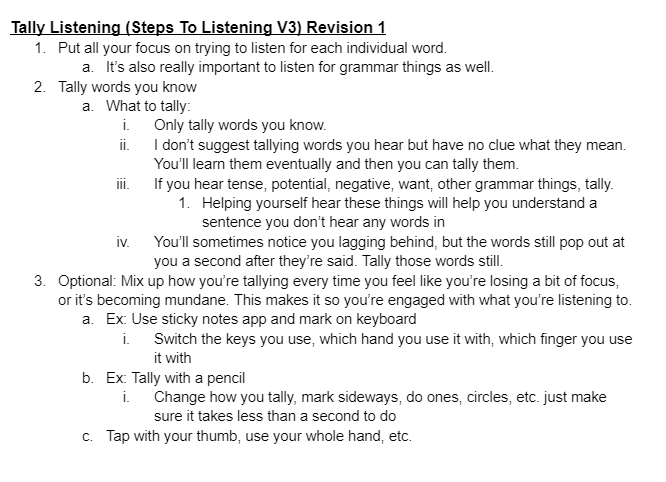Suggestions in this thread are all generally good advice: Keep at it, keep consistent, but don’t burn yourself up in any one session.
If you’re listening to material where you have the option to ‘bail out’ and turn on subs and go into pure relax/enjoy mode, do that as soon as you start getting tired, and reward yourself.
That said…
I’m (apparently) a rare case of someone who initially started picking up the language phonetically first. Before I even knew what kana were, or what set of phonemes were valid in the language, I was picking up single words at a time and other tiny scraps of the language that just snowballed over (very) long periods of time in the background, while I watched/listened to material.
For this reason, I think the most helpful advice is that, when you’re approaching this as a discrete activity and testing yourself to listen only, START SMALL! Listen to little snippets of material, repeat as much as you need, laser-focus on bits you don’t know, give yourself time to really let them soak in, and then work upwards when you start feeling like the material you’re going over is too easy.
There’s a podcast-type thing called Nihongo Con Teppei that someone in another thread linked many moons ago (can’t remember any more details than that), but I’ve sampled some of the stuff and I’ll vouch that it’s a good starting point, and there’s TONS of material so you won’t run out any time soon, even if you do one a day. They’re short, and he talks somewhat slowly and repeats himself a lot, but there’s definitely a natural cadence to the way he has an almost ‘skipping gait’ over his syllables, which will help break you in to more natural flows of speech if you can get used to it and decipher what he’s saying.
Here’s the front page, with the latest-- and most difficult-- material.
But you probably want the ‘last’ page, which has the first lessons. At least, it’s the current last page; these are still being posted so page 32 may not be the furthest-back page in the future.
That said, he (deliberately) does not post transcripts himself, so you’re kinda left hanging there, but according to hearsay, he says that’s part of the point. Take it how you will, I guess.

